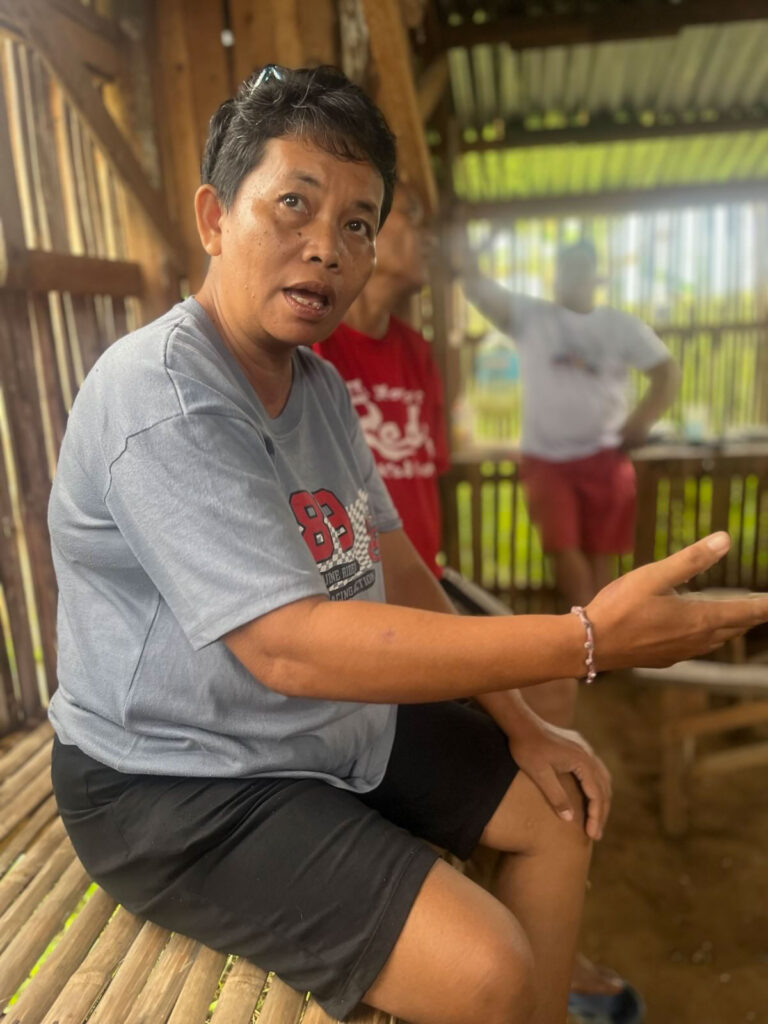
Farmers and residents in Barangay Bato, Toledo, Cebu, are at an emerging frontier of the resistance against carbon-intensive, polluting industry. Their environment and way of life are at risk thanks to Therma Visayas, Inc. (TVI), an Aboitiz-owned coal-fired power plant, but together they’re fighting back.
To strengthen workers’ power for the fight for climate justice, Union Aid Abroad–APHEDA supports The Center for Trade Union and Human Rights (CTUHR) and the Visayas Human Development Agency (VIHDA), a non-government organisation dedicated to supporting workers’ rights and welfare in the Visayas region of the Philippines.
A decade of harm
In 2015, construction began on the TVI plant, which officially began operations in 2019. Residents were misled into believing that the facility would be a sardine factory, preventing early opposition to the project. Instead, they faced the harsh reality of a coal-fired power plant operating amid their community.
TVI is just one of several coal-fired power plants operated by the Aboitiz group in the Philippines. Others include Therma South, Inc. (TSI) in Mindanao and Therma Luzon, Inc. (TLI) in Pagbilao, Quezon, among many others across the country. The Aboitiz conglomerate is among the largest corporate players in the country’s energy sector, with operations spanning power generation, power distribution, and retail electricity supply. It prides itself for being the “nation’s leading renewable energy provider,” yet it continues to expand coal-fired power plants, which are known to significantly contribute to environmental damage and climate change.
Since the plant’s operation began, communities around Barangay Bato report being persistent noise pollution and thick dust blanketing their homes and farmlands. Crops like mangoes, coconuts, and sweet potatoes have suffered. The air reeks of chemicals, especially during coal processing, making breathing difficult for many. Residents are concerned about increasing cases of:
- respiratory illnesses
- skin rashes
- asthma
Water contamination has also become a critical issue. Rainwater and well water, once vital for household use, are no longer used by the local community due to concerns about safety. Even livestock have died from exposure. Meanwhile, local fishing—a main source of livelihood—has dwindled due to restricted sea access and pollution.
Community resistance
The local group KMMB launched a series of protest actions to voice their demands for an end to the destructive operations of coal-fired power plants. In all three mobilisations, they successfully raised their calls, yet the company has continued to ignore their demands and failed to provide any concrete solutions. During their protest in January 2023, with around 400 protestors from the communities, some community representatives were allowed inside the facility for a dialogue. However, in the subsequent protests, this opportunity was no longer granted.
KMMB, PANALIPDAN-KINAIYAHAN, and other local groups continue to voice their opposition, despite ongoing attempts to silence them. According to residents, TVI has offered token relief to address the community’s complaints—such as health checks and the provision of nearly expired medicines and substandard building materials—in an apparent effort to suppress dissent.
The community has also raised serious concerns that the company manipulates environmental test results and fails to provide transparent environmental impact assessments.
Adding to their struggles, red-tagging—a dangerous tactic in the Philippines where union leaders and community activists are falsely labelled as terrorists or communists—has reportedly been used against KMMB members and other concerned citizens, further increasing the risks they face. At the same time, TVI continues its aggressive expansion, proceeding with plans to construct a third massive boiler and acquiring more land, which has caused even greater alarm among residents.
The community’s demands are urgent and unwavering: they call for transparency, accountability, meaningful public consultation, and an immediate halt to operations that threaten their health, their environment, and their fundamental right to a dignified life.
Building worker’s power for climate justice
This community campaign is possible since the launch of the Organising Workers for Climate Justice project, supported by APHEDA, CTUHR and VIHDA. This vital project empowers communities to organise, strategise, and build alliances to tackle urgent social and environmental issues.
